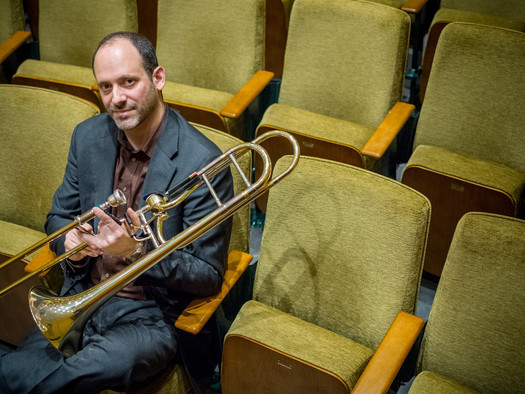On any given day, one can scroll down Facebook and see inspiring memes and articles about the benefits of music education. Articles sprout up in major newspapers about the benefits of a STEAM education (Science, Technology, English, ARTS, Math) vs. STEM. But all said and done, and much like any other subject, music education only has the magical benefits we all read about when it is taught masterfully. And most parents don’t know if it is taught well or not, especially if they do not have any musical background. This is why I recently wrote a post about what to expect from music teachers, and it’s why I am passionate about writing this blog.
Just because someone has chosen to become a music teacher and is mediocrely teaching the subject in a room in the back of a school does not mean they are doing a huge service to our society. Becoming a music teacher is a huge responsibility that extends far beyond the classroom. If they are to be successful, music teachers sign up to do many things whether they know it or not, including:
- Educating their fellow teachers about why music is important in the lives of their students, even though there is constant pressure on their colleagues for higher test scores at all costs.
- Showing administrators that although their state report card may not give them their proper due for a great music program it does not mean that it is not crucial to have in their school.
- Educating parents that just because their child may not want to become a professional musician doesn’t mean that music is not a crucial component to their education, and will teach them skills that they will carry with them throughout their entire life.
As for the job itself, instrumental music teachers have a uniquely complex job:
- They may teach up to 100 students at the same time in large ensemble. Most academic class sizes are capped at 25-30 via a collective bargaining agreement.
- They have to teach dozens of instruments; any pedagogical weaknesses they have immediately is out for everyone to see (hear) at each concert.
- While academic teachers are guaranteed a class to teach every year, band, orchestra and chorus teachers may lose their job if they don’t recruit and retain students for their ensemble.
- In order to be truly effective, music teachers must constantly be on a path of self-improvement. That means practicing and performing regularly on their instrument, attending conferences, concerts, and clinics, and reading up on the latest and best teaching strategies. A person who doesn’t practice his or her own craft loses their skill and therefore loses something in their teaching. The better musician one is, the better teacher they are. A music teacher must always be the best musician in their classroom, and that takes hard work and dedication.
Music teachers can (and must) be role models and good pedagogues at the same time.
Hundreds of parents have told me stories of how their child’s band/orchestra teachers were amazingly kind and inspiring people who were role models for their kids. I do not want to minimize how important it is for me as a parent to have my kids come home and feel that way about their teacher, but there are many great people out there teaching who don’t follow through on the pedagogy piece. What happens when your child is inspired by a music teacher who hasn’t taught them how to play correctly? Is it still okay because the teacher is a “great person”? That’s where parents must be aware enough to ask their teacher the right questions or else their inspired child will quickly lose their spark or, even worse, be told later that while they are passionate about music they are too far behind skill-wise to pursue it as a career. This all-too-common scenario is extremely deflating for thousands of students every year and it does not need to be that way.
Great teaching is not easy, and they need a lot of things to fall into place to be successful and reach their full potential.
What Music Teachers Need in Order to Succeed
Time. Teachers need a year or two to learn — to screw up, even. They need to be able to take risks without worrying about their supervisor breathing down their neck and writing them up, or possibly firing them.
Passion. Music teachers need to be constantly honing and pursuing their craft. How can a teacher stand up in front of a class and tell students to practice every night if they are not doing so themselves? Kids can see right through this, and ultimately students are a reflection of their teacher. If they see the teacher practicing, trying to learn a new instrument, or performing somewhere on the weekends, they are much more likely to be inspired and follow suit.
A “Pied Piper Mentality”. Not enough teachers care if they have a massive attrition rate in their music classes — after all, fewer students to teach means less stress to some. Teachers need to be engaging leaders who don’t let over 50% of students quit their instrument after one year.
Intelligent School Leaders. There are not enough educational leaders who, at very least, appreciate music’s role in education. These types of leaders can create a culture in our schools of educating the whole child, while others are married to test scores alone. At the same time, a supervisor who is a musician has the ability to hold music teachers to a high musical standard.
Community. Music teachers need parents who support them; either through advocacy, fundraising, and especially support with practicing at home.
Great music teaching is all very complicated, that is for sure. I started this blog because I believe parents have a crucial role in the musical education of their children and need some knowledge to be effective in that role. Even the slightest musically educated parent is a major difference between students quitting early or not, and in turn the success of the school music teacher and program.
In most cases, great teaching fixes almost everything — and great music teaching is part of what will save music education from becoming extinct in our society. Parents need to have the same expectations of their music teacher than they do of all the other academic teachers, but they need to know what to expect. While parents expect academic subjects to be taught with rigor, they are more likely to be satisfied with a music teacher who is “cool” and who their kids really like.
While having a magnetic personality is an incredibly important trait for a teacher to have, it is not enough. A great music teacher teaches students how to learn better than anyone else can; and learn in creative ways that school districts all across our nation are trying to figure out how to teach. Once parents know more about what great music teaching “looks like”, they can help grow and support their teacher in what is a noble, and incredibly challenging, profession.
About the Author
A GRAMMY® nominated music educator, ANTHONY MAZZOCCHI has performed as a trombonist with the Los Angeles Philharmonic, New Jersey Symphony, San Diego Symphony, San Diego Opera, Riverside Symphony, Key West Symphony, in various Broadway shows and numerous recordings and movie soundtracks. Tony has served as faculty or as a frequent guest lecturer at The Juilliard School, Manhattan School of Music, New York University, and Mannes College of Music. He has taught grades 4-college and has served as a school district administrator of fine and performing arts. Tony has been a consultant for arts organizations throughout the NY/NJ area. He is currently Associate Director of the John J. Cali School of Music at Montclair State University in New Jersey and Co-Executive Director of the Kinhaven Summer Music School in Weston, Vermont with his wife, Deborah. To read more from this author, please see his book, The Music Parents’ Guide : A Survival Kit for the New Music Parent. It is available at http://www.amazon.com/dp/B00U6S974G.
The content of this Blog article or Banded Story is the intellectual property of the author(s) and cannot be duplicated without the permission of KHS America and/or the author(s). Standard copyright rules apply.



 We look forward to the evolution of this exciting program, and welcome feedback on how we can further enhance the work that you do in music education.
We are excited to offer your program the opportunity to join the KHS America Academic Alliance today.
We look forward to the evolution of this exciting program, and welcome feedback on how we can further enhance the work that you do in music education.
We are excited to offer your program the opportunity to join the KHS America Academic Alliance today.